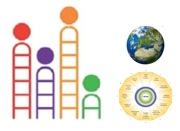
It is always exciting to find people who are on the same page and making a positive difference. Last week I spent a fun morning in Blackburn with Adoption Matters NW, an important local charity. We were sharing coffee and trying to work out how to improve the mental health and confidence of professionals, parents and young people involved in adoption via the provision of psycho-education and support.
In the face of the plans to expand adoption as an option for children and families, we all agreed that it is essential for appropriate training and support to be part of the package, not just for the adoptive parents but also for the adults in schools that adoptive children encounter everyday, and for young people themselves.
A good model for adoption support should, in my view be like good dental care. Good dental care requires an ongoing relationship with a dental practice with regular check-ups that ensure that development of the child's teeth is progressing in a healthy direction. The child and family and the wider community receive regular education about the importance of good dental care across the life span and when decay or irregularities are identified early, intervention can be supportive, less time-consuming and can avoid unnecessary extractions. When going to see a dentist you are glad to be going to see a specialist, and if there are any complications, you prefer to see someone who knows you and knows the specific details about your teeth. Everyone understands that there are some critical periods, as baby teeth and later adult teeth come through, that benefit from closer attention to ensure that the adult teeth emerge strong and healthy.
Why dentistry? There is enough knowledge now about the important phases and tasks of early child development and about the challenges involved in adopting a child who has experienced disruption or trauma, to know that the focus of mental health care and intervention from the very earliest days of the adoption process, should be on prevention and timely education. Intervention cannot be a one time only event, education is needed across the lifespan of the adoption with extra support given at critical phases such as early during placement, at school transition times, or during adolesence. As with dentistry, the goal of an ongoing preventative relationship in adoption support should be, ideally, to provide regular check-ups, and consultations and to maintain the family within a supportive community, so that difficulties can be identified early with a clear goal of preventing unnecessary pain and discomfort, distress or breakdown. Whilst most adopted children are catered for within mainstream education, support and focussed education is needed from people who are knowledgeable about the types of dynamics that can commonly arise.
In my clinical work I have seen too many adoption families accessing support too late, when the difficulties were already intense for child and adult. Often in the absence of adequately funded support resources, adopters find themselves having to interface with poorly informed professionals. Trying to provide crisis intervention in such circumstances is very time-consuming and also often difficult and when too little is provided too late, sometimes really difficult scenarios can have become entrenched.
Why is such support not already more widely available? First and foremost regular adoption check-ups are often not yet properly funded nor are they required of families, and in my view this is a mistake. The process of becoming registered as an adopter is so demanding that it has been my observation that once approved, some professionals breath a sigh of relief and some families are in turn keen to close the door to the professionals with a hope of being able to create a normal family life. Yet adoption is rarely straightforward and when parents adopt children who have been subject to neglect and trauma the parenting process simply will not be like that involved in caring for a typical child. This is very clear - support is needed and should in my view be built into the whole adoption process from the outset.
But it really is not just the adopters themselves who need support and training. For an adoption to be successful, parents need advanced parenting skills, but school based staff also often need advanced understandings of child development and the impact of trauma on learning and behaviour. Understanding and strategies that a typical parent or teacher of a typical child can draw on to muddle through often just are not enough and too often, in the absence of more advanced understanding and skill, adopters and professionals can find themselves at sea and unwittingly exacerbating difficulties that could with more understanding been managed differently.
Adoption is more complicated than dental care but our support systems are not yet as well developed. Adoption is multi-leveled and relationship-based with complex developmental dynamics involved. There are therefore very real challenges in delivering life span adoption support. In my view the implication of this is that support models have to actively encourage and support families and professionals to see being part of a community and the task of developing advanced skills as a life-long learning process.
If you are interested in learning more about the work of Adoption Matters NW and their Centre for Adoption Support click here. I am looking forward to working further with them.
In the face of the plans to expand adoption as an option for children and families, we all agreed that it is essential for appropriate training and support to be part of the package, not just for the adoptive parents but also for the adults in schools that adoptive children encounter everyday, and for young people themselves.
A good model for adoption support should, in my view be like good dental care. Good dental care requires an ongoing relationship with a dental practice with regular check-ups that ensure that development of the child's teeth is progressing in a healthy direction. The child and family and the wider community receive regular education about the importance of good dental care across the life span and when decay or irregularities are identified early, intervention can be supportive, less time-consuming and can avoid unnecessary extractions. When going to see a dentist you are glad to be going to see a specialist, and if there are any complications, you prefer to see someone who knows you and knows the specific details about your teeth. Everyone understands that there are some critical periods, as baby teeth and later adult teeth come through, that benefit from closer attention to ensure that the adult teeth emerge strong and healthy.
Why dentistry? There is enough knowledge now about the important phases and tasks of early child development and about the challenges involved in adopting a child who has experienced disruption or trauma, to know that the focus of mental health care and intervention from the very earliest days of the adoption process, should be on prevention and timely education. Intervention cannot be a one time only event, education is needed across the lifespan of the adoption with extra support given at critical phases such as early during placement, at school transition times, or during adolesence. As with dentistry, the goal of an ongoing preventative relationship in adoption support should be, ideally, to provide regular check-ups, and consultations and to maintain the family within a supportive community, so that difficulties can be identified early with a clear goal of preventing unnecessary pain and discomfort, distress or breakdown. Whilst most adopted children are catered for within mainstream education, support and focussed education is needed from people who are knowledgeable about the types of dynamics that can commonly arise.
In my clinical work I have seen too many adoption families accessing support too late, when the difficulties were already intense for child and adult. Often in the absence of adequately funded support resources, adopters find themselves having to interface with poorly informed professionals. Trying to provide crisis intervention in such circumstances is very time-consuming and also often difficult and when too little is provided too late, sometimes really difficult scenarios can have become entrenched.
Why is such support not already more widely available? First and foremost regular adoption check-ups are often not yet properly funded nor are they required of families, and in my view this is a mistake. The process of becoming registered as an adopter is so demanding that it has been my observation that once approved, some professionals breath a sigh of relief and some families are in turn keen to close the door to the professionals with a hope of being able to create a normal family life. Yet adoption is rarely straightforward and when parents adopt children who have been subject to neglect and trauma the parenting process simply will not be like that involved in caring for a typical child. This is very clear - support is needed and should in my view be built into the whole adoption process from the outset.
But it really is not just the adopters themselves who need support and training. For an adoption to be successful, parents need advanced parenting skills, but school based staff also often need advanced understandings of child development and the impact of trauma on learning and behaviour. Understanding and strategies that a typical parent or teacher of a typical child can draw on to muddle through often just are not enough and too often, in the absence of more advanced understanding and skill, adopters and professionals can find themselves at sea and unwittingly exacerbating difficulties that could with more understanding been managed differently.
Adoption is more complicated than dental care but our support systems are not yet as well developed. Adoption is multi-leveled and relationship-based with complex developmental dynamics involved. There are therefore very real challenges in delivering life span adoption support. In my view the implication of this is that support models have to actively encourage and support families and professionals to see being part of a community and the task of developing advanced skills as a life-long learning process.
If you are interested in learning more about the work of Adoption Matters NW and their Centre for Adoption Support click here. I am looking forward to working further with them.

Comments